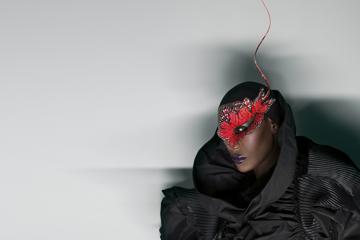Live Review: Moriarty & Lyall Moloney
Midweek inner-city crowds are to be commended at the best of times, but tonight’s Moriarty crew were particularly well behaved.
Midweek inner-city crowds are to be commended at the best of times, but tonight's Moriarty crew were particularly well behaved. The 'world music' group (read: music that doesn't easily fit into any other category) commanded silence, singalongs, reverence and irreverence in equal measure, and we were happy to provide. Particularly impressive was the band's use of acoustics in the space – in these days of Auto-Tune manipulation, there is just something so affecting about hearing people harmonise using their own ears rather than a foldback speaker. This inspired all-in, near-spontaneous communal singing from the crowd, too, as for Jimmy, we all gently sang along with the “buffaloes all come home” (who knows how we knew?). The approach to theatrics in a pop music space also just let the stories of the songs shine through, especially with The Crimson Singer (a busker on a subway), Private Lily (a lady soldier on her way to the battlefield) and Clementine (a dark ditty with an amazing rise and fall).
Lead singer Rosemary Standley joked that the band had lots of songs with women's names to help her out “in a band full of boys”, but her command was unequalled. Part June Carter, part Joni Mitchell, said boys also gave different flavours to the sometimes Western, sometimes swampy, sometimes folky sound. Particular props to percussionists Thomas Puéchavy and Vincent Talpaert for their enthusiasm throughout, and guitarist Charles Carmignac, whose moves while playing a steel guitar were captivating. The common thread was a love of musical fantasy; the stuff Nick Cave does best on his best days. Well worth the slow start at school the next day. Support Lyall Moloney was also notable, but less reliable than the headliner, a one-man band whose ambition was to be admired but whose execution still needed polish.







